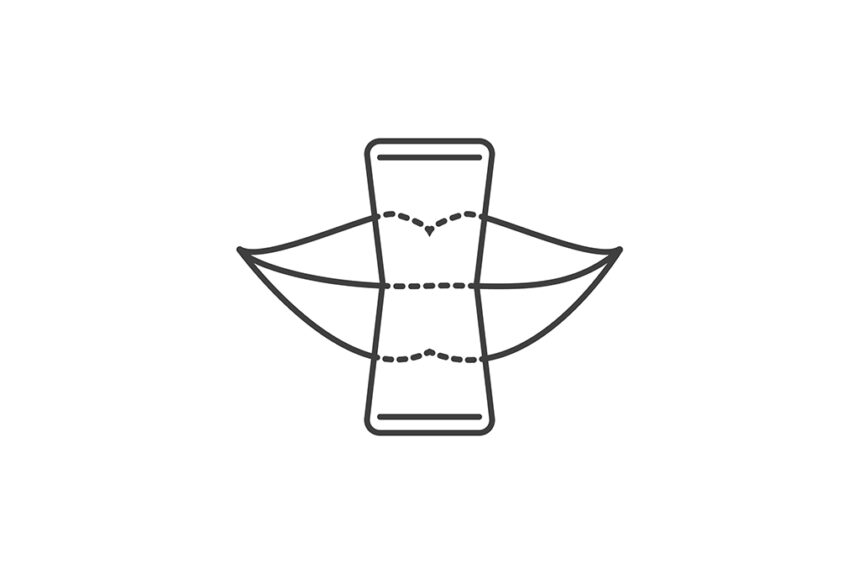Nearly everyone has lost sleep to snoring — whether it’s your own or your partner’s in bed next to you.
To that end, people have gone to great lengths to be able to mitigate snoring and get a restful night’s sleep.
However, a recent trend on TikTok has taken aim at snoring through a sketchy mechanism: taping your mouth shut to encourage nose breathing.
It’s no surprise then that medical experts are cautioning about the potential risks of doing so.
An initial search for “mouth taping” on TikTok generates scores of videos with thousands and even sometimes millions of views. They showcase people asleep with their mouths taped using anything from painter’s tape to Scotch tape, or a special brand known as “Hostage Tape.”
One TikToker says in a video with more than three million views: “At first it was hard to sleep, but that was only because I was really scared of dying and suffocating in my sleep. But after I got over that fear, it was great, I could breathe a lot easier.”
He goes on to claim that mouth taping also resulted in a lack of morning breath and mouth dryness. He added that he felt energized after waking up, compared to his normal feeling of being drowsy.
Other videos make bold health claims about mouth breathing, insinuating it is linked to various health issues ranging from anxiety and depression to insomnia and high blood pressure.
In one video, TikToker Courtney Snell lists the negative health effects of mouth breathing and ends the video encouraging people to try mouth taping.
Meanwhile, other videos claim that mouth taping can result in your face becoming more “snatched.” In other words, it can make your facial features and jawline more pronounced and aesthetically pleasing in a positive light.
A host of other videos involve people doing everyday activities with mouth tape — with some even running eight miles wearing the aforementioned Hostage Tape to encourage nose breathing during exercise.
Cutting through the mouth taping noise on the platform, however, are a few voices of reason who have emerged questioning the practice.
“Are there any actual studies to back this up so we know it’s not placebo tho,” one commenter wrote under a video.
Several physician influencers have also made reaction videos to the practice, outlining the reasons why people should not try the trend despite claims that it can improve one’s health.
TikToker Doctor Rizwan starts out one video by acknowledging the fact that nose breathing can, in fact, lead to improved oxygen intake. However, he notes that mouth taping is not the way to get there.
“You may have obstructive sleep apnea, center sleep apnea, or even a nasal deviation,” he explains. “With those conditions, if you tape your mouth, you might be making them worse. Don’t tape your mouth and don’t blindly follow these online trends.”
If the mouth taping videos make you feel slightly queasy, there’s probably a good reason for it. Since the trend took off on social media in the last year or two, experts have warned of the risks.
There are indeed some health issues linked to mouth breathing – or relying on air from the mouth rather than the nose. Some symptoms include dry mouth, bad breath, sleepiness during the day or improperly aligned teeth.
Mouth breathing is associated with a greater risk of developing sleep apnea and dental issues and can be caused by several different factors, like enlarged adenoids, nasal congestion or a deviated septum. Still, mouth taping is not a clinically proven treatment for any of these issues.
Notably, researchers last year published a study that found “mouth puffing” often continues intermittently or completely during sleep despite mouth taping, according to Pulmonology Advisor.
Doctor Sina, another TikTok influencer, outlines the main risks of mouth taping. Perhaps most importantly, taping your mouth removes your body’s ability to draw oxygen from your mouth — i.e. your backup breathing supply. This is especially dangerous for people who may have undiagnosed nasal or breathing issues.
The American Academy of Sleep Medicine (AASM) recently released a survey that showed 40% of people admitted they had tried viral sleep trends on TikTok in order to solve sleep issues.
Mouth taping made the list, with 12% of people saying they had tried it, along with other trends like sleeping in 90-minute increments, livestreaming your sleep, adding more plants into your bedroom or even watching other people livestream their sleep.
Unsurprisingly, the younger generations are significantly more likely to try these trends, with 47% of Zoomers saying they would try them compared to 11% of boomers.
“Given our fast-paced lives, the allure of quick fixes and shortcuts to better sleep is understandable,” Dr. John Saito, a sleep medicine physician and an AASM spokesperson, said in a statement. “However, it’s essential to approach sleep with evidence-based strategies that are proven to work and address the root causes of sleep problems, and not listen to advice from unvetted sources.”
Experts believe mouth taping is an attempt at a quick fix to mouth breathing issues, rather than addressing the root cause. That so-called solution may be more dangerous than helpful, as it could impair breathing, exacerbate sleep apnea, cause an allergic reaction to tape or disrupt your sleep.
Instead of mouth taping, experts suggest going to a doctor to be evaluated for sleep apnea, or having a clinician walk you through asthma, allergy, or snoring solutions.
“At best, these viral trends are unproven, but at worst… they can be extremely dangerous,” Saito continued. “Getting seven or more hours of healthy sleep each night is the best lifehack for overall health and wellness.”







